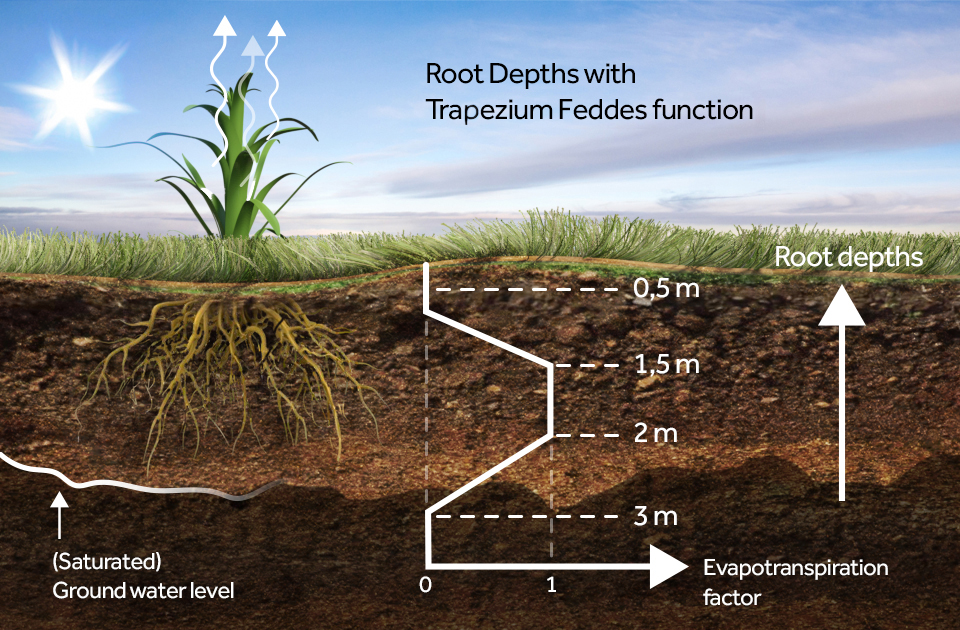Feddes trapezium: Difference between revisions
Jump to navigation
Jump to search
Created page with "Plants can experience oxygen stress when the groundwater level is too high. The plant roots become saturated so that the plant can no longer transpire. To simulate the oxygen stress, the ROOT_DEPTH_M can also be configured with four values instead of one, which will be interpreted using Feddes transpiration model. In the model, when the groundwater level rises, the transpiration increases. However, at a certain point, the groundwater is too high and the transpiration de..." |
No edit summary |
||
| Line 1: | Line 1: | ||
Plants can experience oxygen stress when the groundwater level is too high. The plant roots become saturated so that the plant can no longer transpire. | Plants can experience oxygen stress when the groundwater level is too high. The plant roots become saturated so that the plant can no longer transpire. | ||
To simulate the oxygen stress, the | To simulate the oxygen stress, the [[Root depth m (Water Overlay)|root depth]] can also be configured with four values instead of one, which will be interpreted using Feddes transpiration model. | ||
In the model, when the groundwater level rises, the transpiration increases. However, at a certain point, the groundwater is too high and the transpiration decreases. Water on the surface can then still evaporate, but the plant cannot transpire anymore. | In the model, when the groundwater level rises, the transpiration increases. However, at a certain point, the groundwater is too high and the transpiration decreases. Water on the surface can then still evaporate, but the plant cannot transpire anymore. | ||
Latest revision as of 15:39, 27 February 2024
Plants can experience oxygen stress when the groundwater level is too high. The plant roots become saturated so that the plant can no longer transpire. To simulate the oxygen stress, the root depth can also be configured with four values instead of one, which will be interpreted using Feddes transpiration model. In the model, when the groundwater level rises, the transpiration increases. However, at a certain point, the groundwater is too high and the transpiration decreases. Water on the surface can then still evaporate, but the plant cannot transpire anymore.
The sequence for the four values should be defined in order of largest to smallest depth values and are interpreted as a 0-1-1-0 transpiration factor trapezium.
